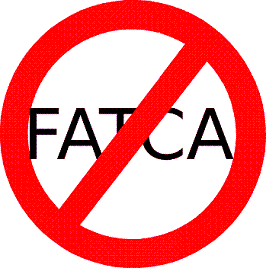Burdens created by the Foreign Account Tax Compliance Act, particularly on Americans living abroad, are so obviously unjust that they are now raising the ire of more than just those of us ideologically and philosophically opposed to large government. Writing for Examiner.com, Koshek Rama Moorthi makes a solid case against FATCA based on its punishing impact on law-abiding Americans living overseas.
For most domestic Americans who would never even think of living in or experiencing any other country besides the US of A, the live and die in America crowd, the ones who can relate to the John Mellencamp song “Small Town,” FATCA is a “no brainer.” Nothing is worse than a rich tax dodger hiding his money overseas when struggling Americans are trying to make ends meet. But the fact is, most American expats are actually poor and middle class. And they ARE paying taxes in the countries they are living in.
American citizens are the only people in the world required to be taxed on their income if the income is made outside the United States. This results in an unfair double taxation. But it is not only the American expat that the IRS will go after. It is also anyone who is a permanent resident or a dual citizen of the United States. That means that if you are an immigrant to the US that still owns a house overseas and collects rent on that house, you have to declare and pay taxes on that income even if none of it will ever come into the United States.
In addition, expatriates will lose all privacy of their financial information that the Americans who stay in their own country will retain. This is because FATCA requires all foreign banks, insurance companies, and other financial institutions to openly reveal all private account information on every American citizen to the IRS. Nothing will be withheld. If there is evidence of past income, the expat can legally be arrested on tax evasion upon setting foot on his beloved United States.
Moorthi’s coverage is all the more interesting because he associates himself with Occupy Wall Street.
In other FATCA news, the IRS is promising final rules in the near future. But as CF&P has emphasized over and over, the fight is not even close to over.

